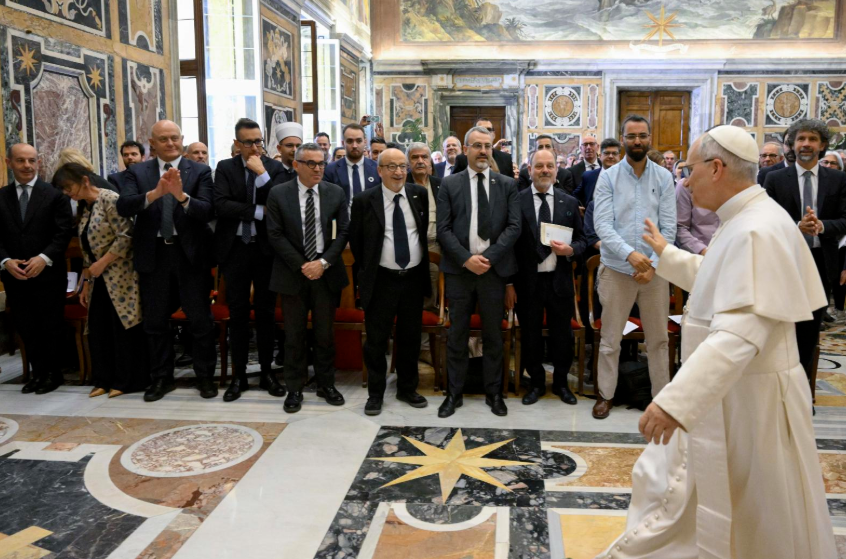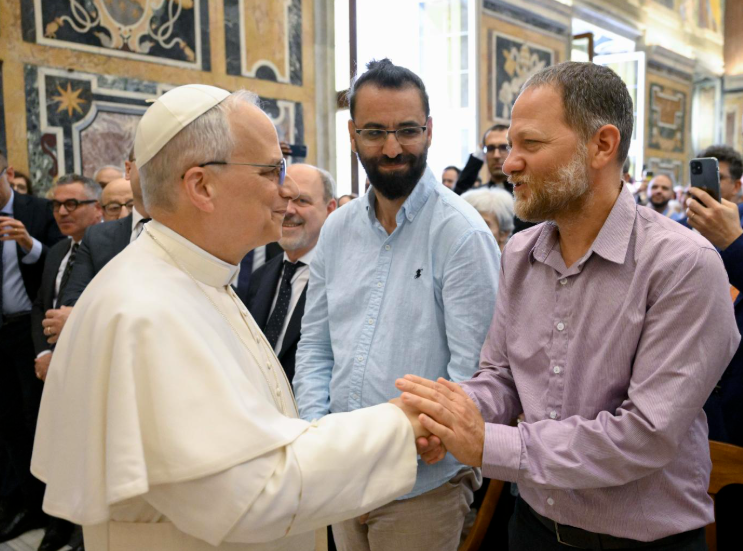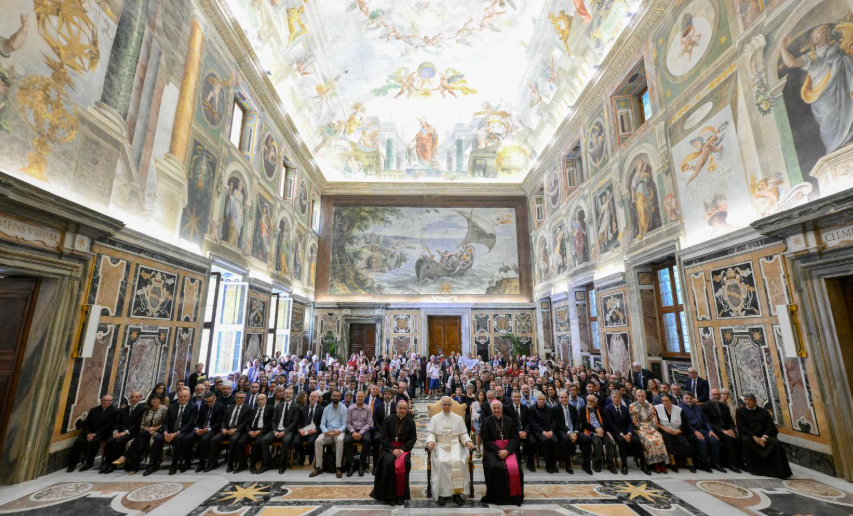VATICAN CITY (CNS) — Promoting peace requires training people’s hearts and minds to be concerned about others and perceive the common good, Pope Leo XIV said.
“Our children and young people need to be able to experience the culture of life, dialogue and mutual respect. Above all, they need the witness of men and women who embody a different and nonviolent way of living,” he said during an audience at the Vatican May 30.
The pope was meeting with people involved in the “Arena of Peace” initiative that began last year with popular movements and Catholic organizations committed to working for peace and justice.
The initiative was launched May 18, 2024, during Pope Francis’ visit to the Italian city of Verona where he met with some 12,500 people involved in grassroots groups and Catholic organizations to pray for peace in the Verona Arena, a Roman amphitheater built in the year 30.
Pope Leo recalled that, on that occasion, Pope Francis said “building peace starts by standing alongside victims and seeing things from their point of view.”
“This approach is essential for disarming hearts, approaches and mentalities, and for denouncing the injustices of a system that kills and is based on the throwaway culture,” Pope Leo said.
He also recalled “the courageous embrace between Maoz Inon, an Israeli whose parents were killed by Hamas, and Aziz Sarah, a Palestinian whose brother was killed by the Israeli army,” during the event in Verona. The two friends work with one another and their “gesture remains as a testimony and sign of hope. We thank them for being here today.”
“Too much violence exists in the world and our societies,” the pope said.
With so many wars, terrorism, human trafficking and widespread aggression, he said, children and young people need role models of people who choose nonviolence.
“Whenever those who have suffered injustice and violence resist the temptation to seek revenge, they become the most credible agents of nonviolent peacebuilding processes,” he said. “Nonviolence, as a method and a style, must distinguish our decisions, our relationships and our actions.”
“The path to peace demands hearts and minds trained in concern for others and capable of perceiving the common good in today’s world,” he said.
However, he said, “we need to recover the patience required for this process to occur.”
“Authentic peace takes shape from the ground up, beginning with places, communities and local institutions, and by listening to what they have to tell us,” the pope said. “In this way, we come to realize that peace is possible when disagreements and the conflicts they entail are not set aside but acknowledged, understood and surmounted.”
This is why the work of “popular movements and associations is especially valuable” and why they generate hope, he said. “You are pursuing projects and activities at the concrete service of individuals and the common good” in dialogue with everyone.
When it comes to nonviolence as a method and a style, the Gospel and the church’s social teaching are a source of support for Christians, and they “can also act as a compass for everyone,” he said.
If there is to be peace, people cannot simply rely on political institutions, he said.
All institutions — educational, economic and social — should be “institutions of peace,” in which the ideals in Pope Francis’ encyclical “Fratelli Tutti, on Fraternity and Social Friendship,” find expression and people “pass from ‘I’ to ‘we,’ in a spirit of solidarity.”
Pope Leo encouraged the groups to be “a leaven of unity, communion and fraternity.”
“Fraternity needs to be recovered, loved, experienced, proclaimed and witnessed in the confident hope that it is indeed possible, thanks to the love of God ‘poured into our hearts through the Holy Spirit,'” he said.
– – –
Reporting by CNS Rome is made possible by the Catholic Communication Campaign. Give to the CCC special collection in your diocese May 31-June 1 or any time at: https://bit.ly/CCC-give




Leave a Reply
You must be logged in to post a comment.